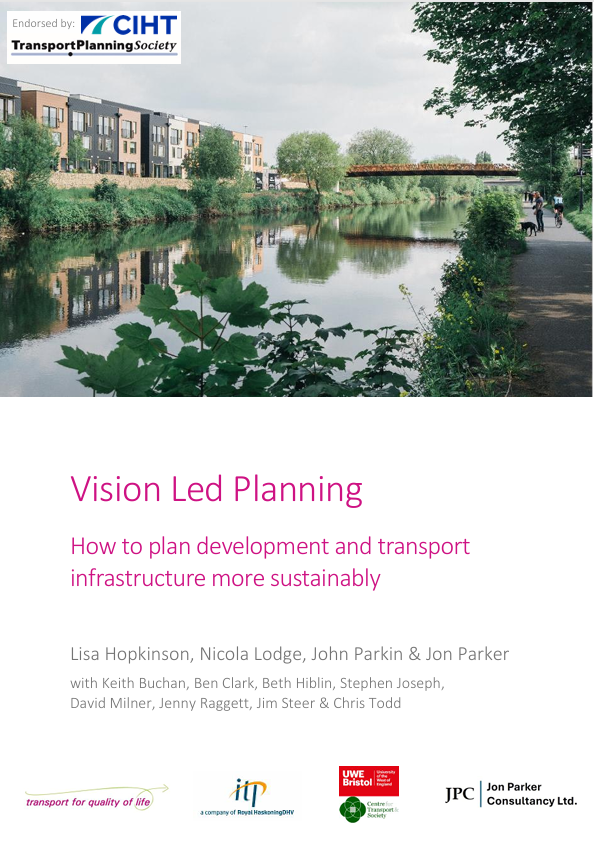

Transport for Quality of Life and partners publish new report on vision led planning, endorsed by CIHT.
Join other savvy professionals just like you at CIHT. We are committed to fulfilling your professional development needs throughout your career
Transport for Quality of Life (TFQL) and partners have released a new report on vision led planning, exploring the ways to plan development and transport infrastructure more sustainably. The report, endorsed by CIHT, intends to help plan development and transport infrastructure using an approach that limits road construction and car travel to help grow prosperity, meet decarbonisation objectives and create more sustainable, accessible, equitable and healthy communities. This can help achieve the Government’s five missions to secure prosperity, reach net zero, and improve safety, opportunities and health.
The report outlines that many roads are congested or have safety issues, while traffic can blight the lives of people living near roads. Policy makers also face development pressures- the need to find space for new housing and stimulate local economies, while not adding to local traffic problems. In most cases policy makers look to increase road capacity to solve these problems rather than considering a full range of options including non-road-based solutions.
Such an approach increases car dependency which undermines public transport services and the safety and attractiveness of walking, wheeling or cycling.
This has several negative consequences:
Instead, the report recommends a vision led approach, beginning with a collective ambition for how a place could look and feel. Unlike a linear ‘inputs’ and ‘outputs’ modelling approach, the vision led approach is iterative and holistic, embracing flexibility, learning from past mistakes and adapting to uncertainty. The report advocates using funds to maintain the existing road network and find more cost effective and less damaging ways to improve access for everyone.
The report provides several examples that illustrate how cost-effective, vision led development, based on high quality design, can provide a better quality of life for residents than car-based development. These include alternatives to the M4 relief road near Newport, Wales; car-free housing developments in Leeds and Brighton as well as several car-light developments. CIHT’s Better Planning, Better Transport, Better Places advice document provides further case studies of developments which have taken a more vision-led approach to transport.
This report is a joint initiative of the Centre for Transport and Society at the University of the West of England, Bristol; ITP; Jon Parker Consultancy; Transport for Quality of Life; and partners.
Join other savvy professionals just like you at CIHT. We are committed to fulfilling your professional development needs throughout your career

{{item.AuthorName}} {{item.AuthorName}} says on {{item.DateFormattedString}}: